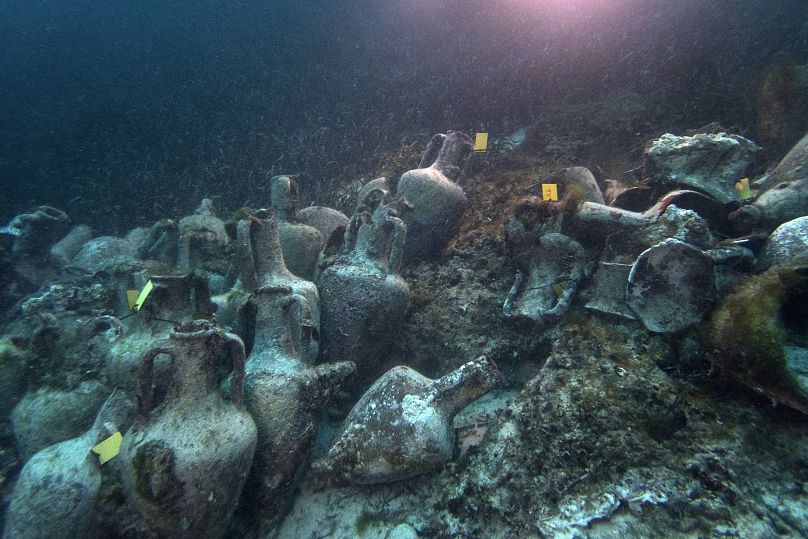Members of the public have the chance to scuba dive to the wreck of an ancient ship that sank in the 5th century BC.
Greece opened its first underwater museum on Saturday, giving members of the public the chance to scuba dive to the wreck of an ancient ship that sank in the 5th century BC.
 ADVERTISEMENT
ADVERTISEMENT
 ADVERTISEMENT
ADVERTISEMENT
The ship was carrying some 3,000-4,000 amphoras, ancient storage devices which in this case were being used to transport wine.
The site, located near the islet of Peristera off the island of Alonissos, will be open to diving enthusiasts from 3 August to 3 October, while non-diving tourists will be able to take a virtual tour at an information centre in Alonissos.
“This wreck lies at a depth of 21-28 metres near the coast of the island of Peristera and contains 3,000 to 4,000 amphorae,” Maria Agalou, president of the Alonissos town council, told the Skai TV channel.
"The amphoras reveal the size of the ancient ship. It was a big ship," she added.
The amphoras, most of which are intact, were discovered in 1985 by a fisherman.
"We offer humanity the Parthenon of shipwrecks," said Kostas Agorastos, governor of Thessaly, the region where the island of Alonissos is located, according to Skai TV.
This large merchant ship is said to have sunk around 425 BC due to bad weather during a crossing between Chalkidiki, in northern Greece, and the island of Skopelos, Ert Pari Kalamara, director of the Department of Underwater Antiquities, told the television channel Ert Pari Kalamara.
The Greek authorities plan to make four other ancient shipwreck sites accessible to scuba-diving tourists.











